Posté par Olivier Bonfait, le 15 avril 2024;
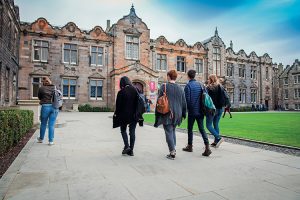 PhD Scholarship in Digital Art History at the University of St Andrews PhD Scholarship in Digital Art History at the University of St Andrews
Application deadline: May 6, 2024
`The School of Art History is offering a scholarship for doctoral research in digital art history and digital-born art for starting in September 2024.
We welcome research proposals that employ or critically examine the applications of digital practices, methodologies, and tools in the fields of art history, museum and heritage studies, or the history of photography. Potential subjects include, but are not limited to:
Data visualisation Text mining Network analysis Digital mapping and GIS 3D digitisation and modelling Augmented/Virtual reality AI and computer vision Digital . . . → En lire plus
Posté par Olivier Bonfait, le 1 février 2024;
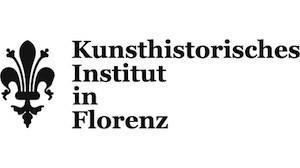 Academic Position in Digital Humanities, KHI, Florence Academic Position in Digital Humanities, KHI, Florence
The Digital Humanities Lab at the Kunsthistorisches Institut in Florenz – Max-Planck-Institut (KHI) invites applications for a pre-doctoral or post-doctoral researcher to join the interdisciplinary team. Deadline for Applications: 16th February 2024. To apply for this position, please visit: https://apply.khi.fi.it/.
The Digital Humanities Lab integrates innovative research methodologies in an open approach to the fields of art history, humanities in general, and computer science.
Founded in 1897, the KHI is dedicated to the history of art and architecture in a transcultural and global perspective. It promotes methodologically innovative research, which looks to the future of the discipline and combines historical approaches with . . . → En lire plus
Posté par Matthieu Lett, le 25 janvier 2024;
- Date et lieu : 30 janvier 2024, de 19h à 20h, Bibliothèque historique de la Ville de Paris (BHVP), 24 rue Pavée, Paris 4e
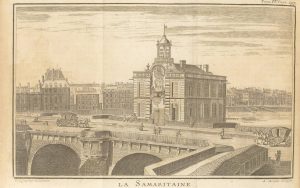 Le site des Guides de Paris (www.guidesdeparis.fr), réalisé dans le cadre du Labex Les Passés dans le présent, propose l’édition numérique de quatre sources majeures pour l’histoire du vieux Paris aux XVIIe et XVIIIe siècles. Les textes et guides de Sauval (1724), Brice (édition 1684), Lemaire (1685) et Piganiol de la Force (édition 1742), encodés XML-TEI, peuvent être nouvellement consultés et interrogés, à partir d’index de référence (index des lieux, des monuments/œuvres, etc.). Le site des Guides de Paris (www.guidesdeparis.fr), réalisé dans le cadre du Labex Les Passés dans le présent, propose l’édition numérique de quatre sources majeures pour l’histoire du vieux Paris aux XVIIe et XVIIIe siècles. Les textes et guides de Sauval (1724), Brice (édition 1684), Lemaire (1685) et Piganiol de la Force (édition 1742), encodés XML-TEI, peuvent être nouvellement consultés et interrogés, à partir d’index de référence (index des lieux, des monuments/œuvres, etc.).
La table ronde proposée à l’occasion de la publication du site présentera ses résultats et mettra particulièrement en lumière les enjeux relatifs à la constitution d’un référentiel . . . → En lire plus
Posté par Olivier Bonfait, le 3 janvier 2024;
- Dates du congrès : 15-19 janvier (par visio)
The Art Museum in the Digital Age (online/Vienna, 15-19 Jan 24)
Online (via Zoom) / Belvedere 21 (Wien), Jan 15–19, 2024
The Belvedere Research Centre is delighted to present the sixth edition of its conference series on the digital transformation of art museums. The international conference builds upon the previous event focusing on topics such as Metaverse, Web 3, and Artificial Intelligence. Unsurprisingly, however, the debate about the responsible use of AI in the museum sector is omnipresent in the contributions submitted this year in particular. Four online sessions, an on-site workshop and a hybrid panel discussion are dedicated to the critical examination of machine learning versus human curation, the digital networking and aggregated analysis of cultural heritage data, and immersive experiences in the interplay of virtuality . . . → En lire plus
Posté par Olivier Bonfait, le 3 janvier 2024;
- Date limite : 15 janvier 2024
Computer Vision and Art History Today (Philadelphia, 14-15 Jun 24)
Philadelphia, PA, USA, Jun 14–15, 2024 Deadline: Jan 15, 2024
The Department of Art History and the College of Information Sciences and Technology at The Pennsylvania State University are pleased to announce an upcoming convening on the use of computer vision (CV) for art historical research. Structured as a symposium with a public keynote, this event will take place June 14 & 15 at the Barnes Foundation in Philadelphia. The keynote lecture, to which all are invited, will be delivered by Leo Impett (University of Cambridge) on Friday, June 14 at 6 pm. Scholars wishing to attend the symposium scheduled for Friday and Saturday morning are invited to indicate their interest as explained . . . → En lire plus
Posté par INHA, le 15 juin 2023;
- Date de la journée d'études : 21 juin 2023, 09:00 - 17:30, INHA, Galerie Colbert, auditorium Jacqueline Lichtenstein
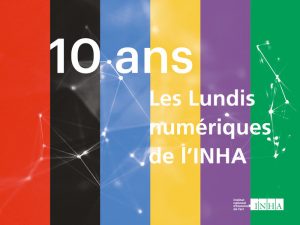
Visuel des 10 ans des Lundis numériques de l’INHA
La notion de temporalité dans les projets numériques en histoire de l’art et archéologie sera le sujet de cette journée d’étude organisée à l’occasion des 10 ans du cycle de séminaires des « Lundis Numériques de l’INHA ». Celle-ci permettra à la fois d’analyser les évolutions des projets présentés depuis une décennie, d’interroger leurs devenirs, mais aussi de réfléchir plus largement à la façon de penser aujourd’hui la pérennité des projets numériques. La journée s’articulera autour de quatre axes qui seront discutés dans des forums . . . → En lire plus
Posté par Isabelle Le Pape, le 14 février 2023;
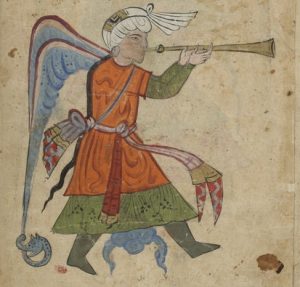 Appel à chercheurs associés BnF 2023-2024 Appel à chercheurs associés BnF 2023-2024
La BnF lance la nouvelle édition de son appel à chercheurs, afin de s’associer le concours de jeunes chercheurs intéressés par l’étude de ses collections et de son histoire. La richesse exceptionnelle autant que l’ampleur de ces collections permettent d’explorer des sources inédites ou méconnues dans toutes les disciplines. Le statut de chercheur associé BnF offre une relation privilégiée à la Bibliothèque, à travers un accueil au cœur de ses départements et de ses collections. En plus des avantages offerts à l’ensemble des . . . → En lire plus
Posté par Olivier Bonfait, le 13 janvier 2023;
- Date limite : 28 février 2023, 28 février 2023
Panofsky Fellowship 2023 | Extended Worlds: Contemporary Art and Digital Technologies: Virtual, Augmented, Mixed Reality

Prof. Dr. Andrea Pinotti, Milan, will hold the Panofsky Professorship at the Zentralinstitut für Kunstgeschichte Munich in 2023. In connection with this professorship the Zentralinstitut für Kunstgeschichte seeks applications for a Panofsky Fellowship.
The fellowship is intended for doctoral students and postdoctoral scholars (who have graduated within the last five years) who are working on a project related to the topic “Extended Worlds: Contemporary Art and Digital Technologies: Virtual, Augmented, Mixed Reality”. Fellows are expected to maintain a presence at the ZI, to present the Fellowship project, and to partake . . . → En lire plus
Posté par Olivier Bonfait, le 30 novembre 2022;
- Date limite : 20 juin 2023, 20 juin 2023
Critical Reflections on Digital Humanities and Cultural Heritage
Special Issue, Multimodal Technologies and Interaction Deadline: Jun 20, 2023 <https://www.mdpi.com/journal/mti/special_issues/N4Q796ZK14>
Multimodal Technologies and Interaction. Special Issue: « Critical Reflections on Digital Humanities and Cultural Heritage ». The topics addressed in the Special Issue « Critical Reflections on Digital Humanities and Cultural Heritage » lie at the interface between fundamental theoretical and methodological issues and the implications of designing, implementing and adopting technology for cultural heritage (CH).
Much research has already been conducted on the use of digital tools for cultural heritage, from digitising objects to designing experiences using, for example, eXtended Realities (XR) to make heritage accessible and inclusive. At the European level, many initiatives have been undertaken to support digital readiness and transformation, such as the recently . . . → En lire plus
Posté par Elliot ADAM, le 24 octobre 2022;
- Date : 1er décembre 2022, 1er décembre 2022
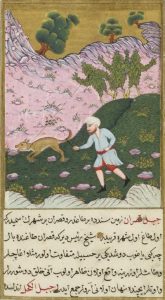 Journée d’études : « Les bases de données iconographiques à l’heure de l’intelligence artificielle : enjeux, état des lieux et perspectives » (Paris, 1 déc. 2022) Journée d’études : « Les bases de données iconographiques à l’heure de l’intelligence artificielle : enjeux, état des lieux et perspectives » (Paris, 1 déc. 2022)
À l’occasion du lancement du nouveau site de Mandragore, la base de données iconographique des manuscrits de la BnF, une journée d’étude se penche sur les nouvelles perspectives offertes par les technologies d’intelligence artificielle.
En novembre 2022, la BnF met en ligne une nouvelle version de . . . → En lire plus
Posté par Olivier Bonfait, le 15 mai 2022;
- Date limite : 19 juin, 19 juin
PhD Fellowships, Digital Visual Studies
Center for Digital Visual Studies, Max Planck Society and University of Zurich, Sep 1, 2022–Sep 1, 2025 Application deadline: Jun 19, 2022
The Max Planck Society (MPG) and the University of Zurich (UZH) invite applications for interdisciplinary predoctoral fellowships in the field of Digital Visual Studies (DVS) for a duration of 1+2 years. The program is part of a 5-year cross-institutional Digital Humanities research project funded by the MPG, supported by the Bibliotheca Hertziana – Max Planck Institute for Art History (BHMPI) and collaborating with the Swiss Art Research Infrastructure (SARI) and the UZH Digital Society Initiative (DSI).
The fellows will carry out cutting-edge multidisciplinary research at the intersection of Art and Architectural History and Computer Science in a program specifically designed to tackle the . . . → En lire plus
Posté par Olivier Bonfait, le 9 février 2022;
- date et lieu de la rencontre : mercredi 16 février, 18h, Auditorium Jacqueline Lichtenstein, mercredi 16 février, 18h, Auditorium Jacqueline Lichtenstein, mercredi 16 février, 18h, Auditorium Jacqueline Lichtenstein

Lancement de la nouvelle version d’AGORHA
La nouvelle version d’AGORHA, système de gestion et consultation des bases de données patrimoniales et de recherche produites par l’INHA, publiée fin 2021, est le fruit de trois années de travail et de réflexion, engagées en mai 2018. Alors que les technologies sous-jacentes à la première version d’AGORHA se montraient vieillissantes, il était apparu nécessaire de refonder totalement l’ensemble des logiciels mobilisés pour produire AGORHA.
Les choix effectués pour cette refondation découlent pour beaucoup des expérimentations menées au cours des années précédentes dans le cadre des projets de recherche de l’INHA. . . . → En lire plus
Posté par Revue Histoire de l Art, le 29 juin 2021;
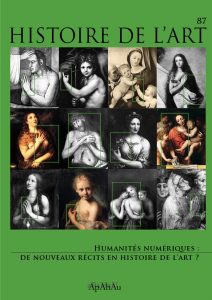
Humanités numériques : de nouveaux récits en histoire de l’art ?
Les humanités numériques ouvrent des champs nouveaux d’étude et de recherche. Loin d’être seulement des outils pour constituer des ressources en histoire de l’art, elles jouent un rôle de plus en plus important dans la conception de la discipline et son développement. Elles transforment les œuvres, leurs reproductions et les textes à leur sujet non pas en objets ni en représentations, mais en données, qui peuvent s’insérer dans des séries temporelles, matérielles, visuelles et spatiales.
L’approche numérique est une pratique intellectuelle amenée à changer en profondeur la discipline, dans l’étude de ses objets, la constitution, . . . → En lire plus
Posté par Nicolas Ballet, le 3 avril 2021;
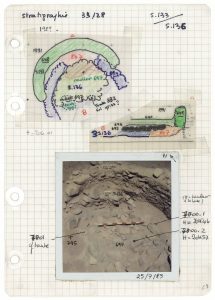
Séminaire Digital Humanities / Artificial Intelligence (DHAI).
Séance : « Patrimoine et humanités numériques. Regards croisés entre archéologie et conservation-restauration des biens culturels ».
Mardi 13 avril 2021, de 12h à 14h (heure de Paris).
Lien de connexion vers la salle virtuelle GoToMeeting : https://global.gotomeeting.com/join/686611389
Nous aurons la joie de recevoir Christophe Tufféry et Grazia Nicosia (Inrap, EUR Paris Seine Université Humanités) pour une séance intitulée « Patrimoine et humanités numériques. Regards croisés entre archéologie et conservation-restauration des biens culturels ».
Résumé : L’utilisation des technologies numériques a fortement impacté les données patrimoniales aussi bien . . . → En lire plus
Posté par Olivier Bonfait, le 19 novembre 2020;
- Date limite : 31 janvier 2020, 31 janvier 2020
 Digital Art History Journal #7: Art History in a Global Network? Deadline: Jan 31, 2021 Digital Art History Journal #7: Art History in a Global Network? Deadline: Jan 31, 2021
Zonas de Contacto: Art History in a Global Network?
Digital technologies have catalyzed globalization; yet, the precarity of global networks has become increasingly apparent in the face of pandemics and climate change. International collaboration often reveals deep disparities in access, infrastructure, and institutional resources. The profound (and sometimes disorienting) effect of automated computation on everyday life can only be properly understood within historical frameworks that articulate the interplay between technological mediation and the production of history. But this oft-repeated point begs the question: Who has the privilege to write these histories, and how?
. . . → En lire plus
Posté par Nicolas Ballet, le 29 mai 2019;
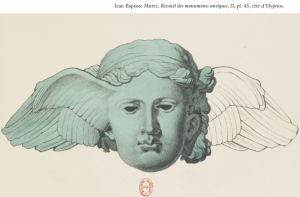
Jean-Baptiste Muret, Recueil des monuments antiques, II, pl. 45, tête d’Hypnos.
À l’occasion de la mise en ligne du premier corpus du « Digital Muret », l’INHA et la BnF organisent une journée d’études pour présenter et mettre en perspectives les recherches menées dans ce programme depuis 2017. Jean-Baptiste Muret (1795-1866) a été le dessinateur du Cabinet des Médailles de 1830 à 1866 ; tout au long de sa carrière, il a constitué un ensemble de planches en couleur reproduisant des objets antiques pris dans différentes collections, privées et publiques, et mis en série pour mieux en comprendre . . . → En lire plus
Posté par Nicolas Ballet, le 24 mai 2018;

Utagawa Hiroshige (1797–1858), Sunset at Seta, ca. 1835, polychrome woodblock print; ink and color on paper, courtesy of The MET, New York.
Data mining and knowledge discovery from large and complex data sets including visual images have advanced significantly in the past several years. Although Digital Art History emerged already in the late 1990s and the access to large digital image collections is steadily growing, the study of art images in the context of big data and application of predictive analytics has been advancing slowly (Drucker, 2013; Manovich 2015). This is especially the case for non-Western pre-modern . . . → En lire plus
Posté par Olivier Bonfait, le 15 avril 2018;
- date limite : 1er juin 2018, 1er juin 2018
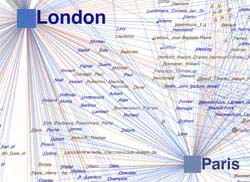 Call for members: Major new Institute opens at King’s College London with Getty Foundation support Call for members: Major new Institute opens at King’s College London with Getty Foundation support
Posted on 27/03/2018
Institute in Ancient Itineraries: The Digital Lives of Art History Call for members
The Project
The 18-month Institute in Digital Art History is led by King’s College London’s Department of Digital Humanities (DDH) and Department of Classics, in collaboration with HumLab at the University of Umeå, with grant support provided by the Getty Foundation as part of its Digital Art History initiative.
It will convene two international meetings where Members of the Institute will survey, analyse and debate the current state of digital art history, and map out its future research agenda. . . . → En lire plus
Posté par Matthieu Lett, le 29 mai 2017;
- Date limite : 1er octobre 2017
 The scientific assistant will develop a project proposal for a digital learning environment in the field of architectural history. The environment should enable students on the bachelor level to study architectural history autonomously by drawing on the wide variety of scholarly databases in the history of art and architecture. The environment should train students in architectural history, its methodology and questions, by improving digital literacy. Conversely, the environment should provide a testing ground for the development of sustainable and high-performance databases, integrating ongoing research into art and architectural data into the curriculum of architecture students. The ideal candidate has a background in architectural history . . . → En lire plus
Posté par Antonella Fenech, le 8 mars 2017;
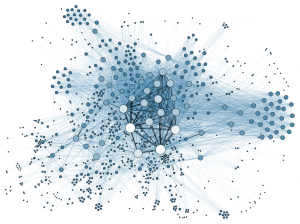 Humanités numériques – Appel à candidature pour deux contrats post-doctoraux Humanités numériques – Appel à candidature pour deux contrats post-doctoraux
Date limite : 30 avril 2017
http://www.irht.cnrs.fr/fr/actualites/humanites-numeriques-appel-candidature-pour-deux-contrats-post-doctoraux
Depuis les années 2000, les humanités numériques se sont imposées comme un nouvel horizon des chercheur.e.s dans l’ensemble des disciplines des humanités et des sciences sociales. Fondées sur un accès transformé aux données de la recherche, elles ont modifié les pratiques des chercheur.e.s dans de très nombreux domaines. Le CNRS les a mises parmi ses priorités depuis de nombreuses années et s’efforce de les soutenir au sein des UMR et UPR qu’elle opère ainsi qu’au sein des MSH et d’unités spécialisées, . . . → En lire plus
|
Équipe Rédacteur en chef : Olivier Bonfait.
Rédacteurs : Elliot Adam (Moyen Age) ; Nicolas Ballet (XX-XXIe siècles) ; Matthieu Fantoni (musées) ; Antonella Fenech Kroke (bourses) ; Vladimir Nestorov (Lettre mensuelle)
Administrateur web : Matthieu Lett.
ancien éditeur : Pascale Dubus
anciens rédacteurs : Gautier Anceau, Sébastien Bontemps, Damien Bril ; Sébastien Chauffour ; Ludovic Jouvet ; Aude Prigot
|
 PhD Scholarship in Digital Art History at the University of St Andrews
PhD Scholarship in Digital Art History at the University of St Andrews Academic Position in Digital Humanities, KHI, Florence
Academic Position in Digital Humanities, KHI, Florence Le site des Guides de Paris (www.guidesdeparis.fr), réalisé dans le cadre du Labex Les Passés dans le présent, propose l’édition numérique de quatre sources majeures pour l’histoire du vieux Paris aux XVIIe et XVIIIe siècles. Les textes et guides de Sauval (1724), Brice (édition 1684), Lemaire (1685) et Piganiol de la Force (édition 1742), encodés XML-TEI, peuvent être nouvellement consultés et interrogés, à partir d’index de référence (index des lieux, des monuments/œuvres, etc.).
Le site des Guides de Paris (www.guidesdeparis.fr), réalisé dans le cadre du Labex Les Passés dans le présent, propose l’édition numérique de quatre sources majeures pour l’histoire du vieux Paris aux XVIIe et XVIIIe siècles. Les textes et guides de Sauval (1724), Brice (édition 1684), Lemaire (1685) et Piganiol de la Force (édition 1742), encodés XML-TEI, peuvent être nouvellement consultés et interrogés, à partir d’index de référence (index des lieux, des monuments/œuvres, etc.).
 Appel à chercheurs associés BnF 2023-2024
Appel à chercheurs associés BnF 2023-2024










